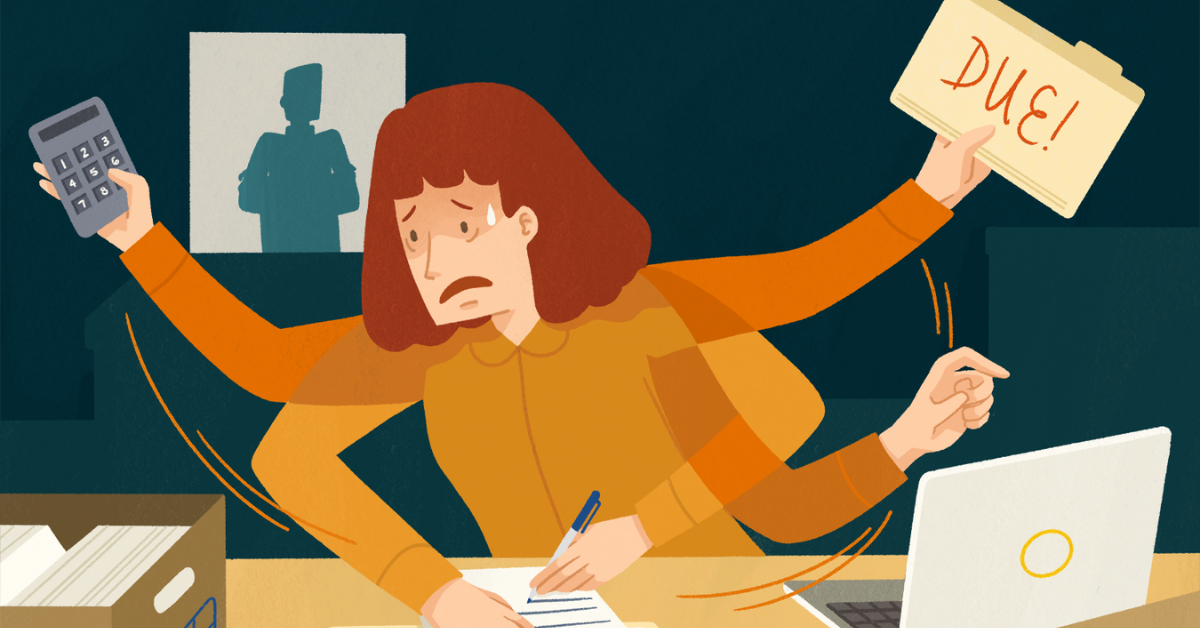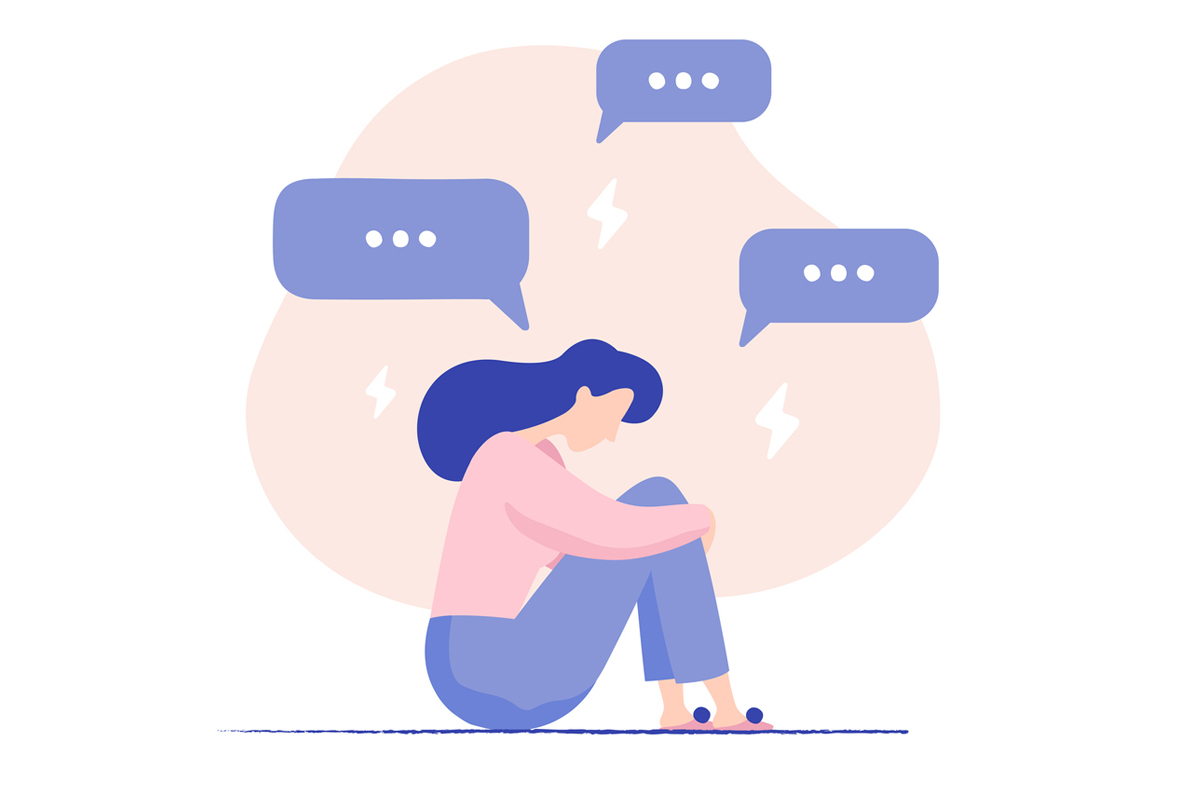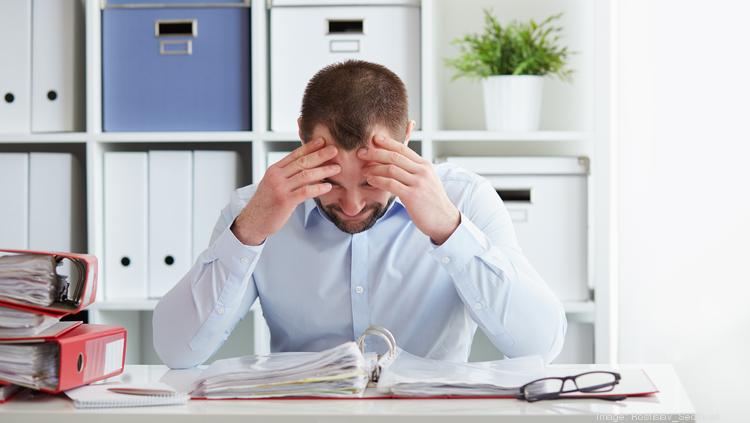Do you feel overwhelmed and stressed at work? You’re not alone. Millions of people suffer from work anxiety, which can be caused by a number of factors such as job insecurity, long hours, and office politics. If you’re struggling to cope with the stress of your job, don’t worry – we’re here to help! In this blog post, we will discuss some tips for managing work anxiety and improving your mental health.
Contents
What Is Work Anxiety?
 Work anxiety is a type of anxiety that is triggered by thoughts and feelings related to work. It can be caused by a number of factors, including job insecurity, stress from deadlines or high expectations, and difficult relationships with co-workers. This type of anxiety can be very disruptive and can make it difficult to focus on work tasks.
Work anxiety is a type of anxiety that is triggered by thoughts and feelings related to work. It can be caused by a number of factors, including job insecurity, stress from deadlines or high expectations, and difficult relationships with co-workers. This type of anxiety can be very disruptive and can make it difficult to focus on work tasks.
Work anxiety is anxiety that can be caused by one’s job or work environment. It can be a feeling of worry, stress, or fear that is related to one’s job. Work anxiety can vary in severity and may be accompanied by other symptoms such as chest pain, shortness of breath, dizziness, nausea, headache, sweating, trembling, and feelings of apprehension or dread.
Approximately 70 percent of people all over the globe experience some type of anxiety in their lives. Out of these people, around 25 percent report experiencing work anxiety.
This problem also appears to be on the rise, as it is estimated that work anxiety has increased by about 50 percent in the last decade.
Signs of Work Anxiety

There can be many signs of work anxiety. Some of these are:
Overwhelmed Feeling
This sign is usually accompanied by a feeling of being out of control. The person may feel like they are constantly behind and unable to catch up. They may also feel that their job is too demanding or complex. Sometimes, this feeling can lead to panic attacks.
Inability To Concentrate
People who are struggling with work anxiety may find it difficult to focus on their tasks. They may feel like they are constantly jumping from one thing to the next and unable to settle down. This can result in a lot of wasted time and energy. This also makes it difficult to complete tasks efficiently.
Excessive Worrying
People who are struggling with work anxiety may find themselves worrying excessively about their job. They may worry about things such as losing their job, not meeting deadlines, or not being able to do their job properly. This can be very stressful and disruptive.
Restlessness
Anxious people tend to be very restless and find it hard to sit still for long periods of time. This can manifest as fidgeting, pacing, or tapping one’s foot. Sometimes, this can also lead to insomnia.
Difficulties Sleeping
People who are struggling with work anxiety may find it difficult to fall or stay asleep. This is because anxiety can cause a lot of restless thoughts and make it hard to relax. People who have trouble sleeping due to work anxiety often feel tired and irritable the next day.
Irritability
Irritability is a common symptom of work anxiety. People who are struggling with this type of anxiety may find themselves snapping at co-workers or becoming easily frustrated. This can lead to tension in the workplace and decreased productivity.
Anxiety Disorders
Work anxiety can sometimes develop into a full-blown anxiety disorder. If left untreated, this can be very disruptive and impair one’s ability to function normally in everyday life. There are many different types of anxiety disorders, but some of the most common include:
- Generalized Anxiety Disorder (GAD)
- Social Anxiety Disorder (SAD)
- Panic Disorder
- Obsessive-Compulsive Disorder (OCD)
Depression
Depression is a very common complication of anxiety disorders. People who are struggling with an anxiety disorder are at a higher risk of developing depression. Depression can make it difficult to cope with the symptoms of anxiety and can often lead to thoughts of suicide.
Causes of Work Anxiety

There are many causes of work anxiety. Some of the most common are:
Job Stress
Jobs can be very stressful and demanding. This can lead to a lot of pressure and stress, which can cause work anxiety. This is especially common in jobs that are high-pressure or have tight deadlines. Sometimes, job stress can be too much to handle and can lead to anxiety disorders.
Poor Job Fit
If a person is in a job that they are not suited for, it can cause a lot of anxiety. This is because the person may feel like they are constantly struggling and unable to meet the demands of the job. They may also feel like they are not good enough or are not using their skills properly.
Lack of Control
People who feel like they have little control over their lives often experience work anxiety. This may be due to factors such as lack of autonomy at work, inflexible hours, or an excessive workload. When people do not feel like they have any control over their situation, it can lead to a lot of anxiety and stress.
Fear of Failure
People who are afraid of failure often experience work anxiety. This may be due to factors such as perfectionism or a fear of public speaking. When people are constantly worried about failing, it can lead to a lot of tension and stress.
Money Problems
This can be a result of having a low-paying job, being in debt, or not having enough savings. When people are struggling financially, it can cause a lot of stress and anxiety. This often leads to difficulty concentrating and completing tasks.
Relationship Problems
Stressful relationships can often lead to work anxiety. This may be due to the fact that people tend to take their anger and frustrations out at work. Alternatively, the person may feel like they are constantly neglecting their relationships because they are working too much.
Deadlines
Dealing with tight deadlines can be very stressful and can cause work anxiety. This is because people may feel like they are constantly under pressure and are not able to meet the demands of the job. When people feel stressed and anxious, it often leads to decreased productivity. This may also lead to job burnout.
Working Hours
Worrying about working long hours can also lead to work anxiety. This is because people may feel like they are not able to have a healthy work-life balance. When people are constantly working, it can lead to fatigue and stress. This can often impair their ability to function normally.
Negative Impacts of Work Anxiety

There are many negative impacts of work anxiety. Some of the most common are:
Decreased Productivity
When people are anxious, they often find it difficult to concentrate and focus on their work. This can lead to a decrease in productivity and may cause them to fall behind on their tasks. This can sometimes result in job loss.
Job Burnout
People who are struggling with work anxiety may eventually experience job burnout. This is when a person becomes so overwhelmed and stressed that they no longer enjoy their job. When this happens, the person may start to feel like they want to quit their job. This also means that they are more likely to get sick and have decreased work performance.
Poor Mental Health
Anxiety can often lead to poor mental health. This is because when people are feeling anxious, they tend to experience a lot of negative thoughts and feelings. This can sometimes result in depression, bipolar disorder, or other mental health conditions. Sometimes, people with work anxiety will also experience suicidal thoughts.
Physical Illnesses
Work anxiety can also lead to physical illnesses. This is because when people are feeling stressed and anxious, their body releases a lot of cortisol. When this happens over a long period of time, it can often lead to health problems such as heart disease, diabetes, or obesity.
Stressful Relationships
When people are struggling with work anxiety, it often impacts their relationships negatively. This is because they may find themselves too busy or preoccupied to spend time with their loved ones. Alternatively, the person may be so irritable and stressed that they end up arguing with their partner frequently.
Alcohol Abuse/Drug Abuse
People who are struggling with work anxiety often turn to alcohol or drugs as a way to cope. This is because these substances can help them to relax and forget about their problems. However, this is only a temporary solution and it can often lead to addiction and other health problems.
Self-Medication
When people are struggling with work anxiety, they may turn to self-medicating as a way to cope. This means that they will use drugs or alcohol as a way to relieve their symptoms. Unfortunately, this often leads to addiction and further problems.
Suicidal Thoughts
Work anxiety can often lead to suicidal thoughts. When people are feeling overwhelmed and hopeless, they may start to think about suicide as a way out. This is why it is so important to seek help if you are struggling with work anxiety. It is also important to remember that you are not alone.
Unwanted Stress
Stress can also be a major contributor to work anxiety. This is because when people are feeling stressed, it often amplifies the effects of anxiety. When this happens, it can be difficult for people to concentrate and focus on their work. It can also lead to job burnout and physical illnesses.
Treatment of Work Anxiety
 In some cases, people may require more intensive treatment for work anxiety. This often includes a combination of therapy, medication, and self-help strategies. When this happens, it is important to seek out a mental health professional who can help you get back on track.
In some cases, people may require more intensive treatment for work anxiety. This often includes a combination of therapy, medication, and self-help strategies. When this happens, it is important to seek out a mental health professional who can help you get back on track.
Therapy
Therapy is often a good option for people who are struggling with work anxiety. This is because it can help them to identify and address the root causes of their anxiety. It can also help them to learn coping skills and how to manage their anxiety. This also means that they will be able to better manage their stress levels. There can be many types of therapies:
Individual Therapy
Individual therapy is a type of therapy that is done one-on-one with a therapist. This is often a good option for people who are struggling with work anxiety because it allows them to focus on their own specific needs. The therapist can provide support and guidance, and help the person to develop strategies to manage their anxiety.
Group Therapy
Group therapy is a type of therapy that takes place in a group setting. This is often a good option for people who are struggling with work anxiety because it provides social support. The therapist will lead the group and help the participants to share their experiences and learn from each other.
Cognitive- Behavioural Therapy (CBT)
Cognitive-behavioral therapy (CBT) is a type of therapy that helps people to change the way that they think and behave. This is often a good option for people who are struggling with work anxiety because it can help them to address the root causes of their anxiety. CBT can also help people to develop coping skills and manage their anxiety better.
Medication
If someone’s work anxiety is severe, they may require medication in order to get relief from their symptoms. There are many different types of medications that can be prescribed for work anxiety, including antidepressants and anti-anxiety medications.
Self-Help Tips
There are also some self-help tips that can be useful for people who are struggling with work anxiety. Some of these tips include:
- Practicing relaxation techniques such as yoga or meditation
- Exercising regularly
- Eating a healthy diet
- Getting enough sleep
- avoiding caffeine and alcohol
- speaking to a therapist or counselor if needed
How To Prevent Work Anxiety?

There are many methods to prevent work anxiety. Some of these are:
Talk To Someone About It
You should always talk to someone about how you’re feeling, whether it be a friend, family member, or therapist. This will help to relieve some of the built-up stress and anxiety that you may feel.
Identify Root Causes
Once you have identified the root causes of your work anxiety, start addressing them head-on. This could mean therapy, medication, or self-help tips. You can also keep a journal to track your progress.
Set Realistic Goals
When you’re feeling overwhelmed with work, try setting realistic goals for yourself. This could mean taking things one step at a time and not trying to do everything at once.
Create Stress-Free Environment
Try to create a stress-free environment both in and outside of the workplace. This could mean leaving work at work, avoiding caffeine and alcohol, and practicing relaxation techniques.
Create Relaxing Environment At Home
Try to create a relaxing environment at home by doing things such as diffusing essential oils, using soft lighting, and listening to calming music. This can help to reduce the amount of stress that you feel outside of work.
Get Enough Sleep
Make sure you’re getting enough sleep by going to bed and waking up at the same time every day. This will help to regulate your body’s natural rhythm and reduce stress levels.
Exercise Regularly
When you exercise, your body releases endorphins which can help improve your mood and make you feel happier. Try to exercise for at least 30 minutes a day, five days a week.
Eat Healthy Diet
Eating a healthy diet is important for both your mental and physical health. Make sure to include plenty of fruits, vegetables, whole grains, and lean protein in your diet. This will help to keep your body and mind healthy and reduce stress levels.
Try To Eliminate Caffeine And Alcohol
Caffeine and alcohol can both have negative effects on your mental health. Try to avoid drinking caffeine or alcohol in order to reduce the amount of stress that you feel.
Conclusion
Work anxiety can be debilitating, but there are many ways to address it. Make sure to talk to someone about how you’re feeling, identify the root causes of your anxiety, and try some self-help tips. You can also use these tips to prevent work anxiety from occurring in the first place. Lastly, remember that you’re not alone and many people struggle with work anxiety. You can get help from a therapist or counselor if needed.
A Word From Therapy Mantra
Your mental health — your psychological, emotional, and social well-being — has an impact on every aspect of your life. Positive mental health essentially allows you to effectively deal with life’s everyday challenges.
At Mantra Care, we have a team of therapists who provide affordable online therapy to assist you with issues such as depression, anxiety, stress, relationship, OCD, LGBTQ, and PTSD. You can take our mental health test. You can also book a free therapy or download our free Android or iOS app.


